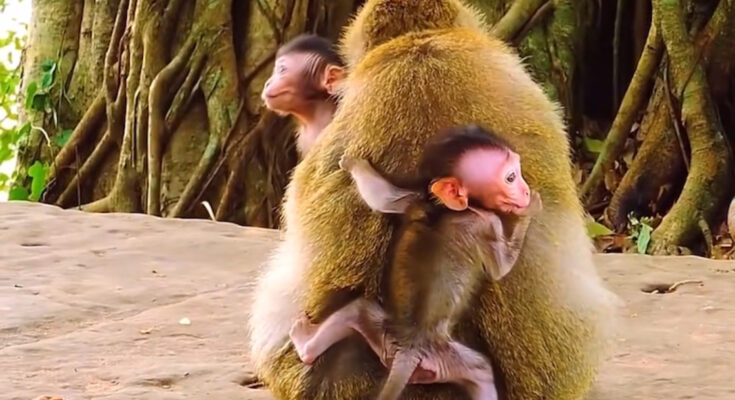Raising and caring for newborn monkeys, whether in a sanctuary, zoo, or research setting, requires a deep understanding of their physical and emotional needs. Just like human infants, baby monkeys rely heavily on attentive care, proper nutrition, and mental stimulation to grow strong and healthy. Here are some essential tips to help stimulate the growth and overall development of newborn monkeys.
1. Provide Proper Nutrition
Nutrition is the foundation of healthy growth. Newborn monkeys depend on their mother’s milk during the first few weeks or months of life. If a mother is unable to nurse, caretakers must provide a suitable milk replacement formula that closely mimics natural monkey milk. The formula should contain essential nutrients like proteins, fats, vitamins, and minerals. As the monkey grows, soft fruits, vegetables, and small insects can gradually be introduced to develop chewing and digestion.
2. Ensure Warmth and Comfort
Baby monkeys are highly sensitive to changes in temperature. In the wild, they rely on their mother’s body heat to stay warm. When raised in captivity or under human care, it’s important to maintain a consistent, comfortable temperature in their environment. Use soft bedding materials, incubators, or heating pads (under supervision) to create a cozy and secure space. Comfort plays a major role in reducing stress, which in turn supports healthy growth and immune function.
3. Encourage Physical Activity
Physical stimulation helps newborn monkeys develop strength and coordination. As they begin to crawl, climb, and explore, caretakers can provide safe climbing structures, ropes, and small branches to encourage natural movements. Supervised playtime not only strengthens their muscles but also improves balance and motor skills. It’s important to gradually increase the level of activity as the monkey grows to prevent injuries.
4. Promote Social Interaction
Monkeys are social animals by nature. Isolation can lead to developmental delays and emotional distress. If the baby monkey cannot stay with its mother, it should be socialized with other monkeys of similar age or introduced to surrogate caregivers who can provide affection and interaction. Gentle grooming, play, and touch help newborns feel secure and build social skills vital for integration into a troop later in life.
5. Stimulate Mental Development
Mental stimulation is just as important as physical care. Simple enrichment activities such as colorful toys, soft objects, and sound-producing items can help develop curiosity and problem-solving skills. As the monkey matures, introducing more complex enrichment—like puzzle feeders or interactive games—will keep its mind active and reduce boredom-related behaviors.
6. Regular Health Check-Ups
Frequent veterinary check-ups are essential to monitor the monkey’s growth, detect potential health issues early, and ensure vaccinations are up to date. Tracking weight, size, and developmental milestones provides valuable insight into the baby’s overall progress.
Conclusion
Caring for newborn monkeys is a delicate yet rewarding responsibility. By focusing on proper nutrition, warmth, physical and mental stimulation, and social bonding, caretakers can help ensure that these intelligent creatures grow into healthy, well-adjusted adults. Consistent care, patience, and love are the keys to stimulating the growth and happiness of a newborn monkey.



